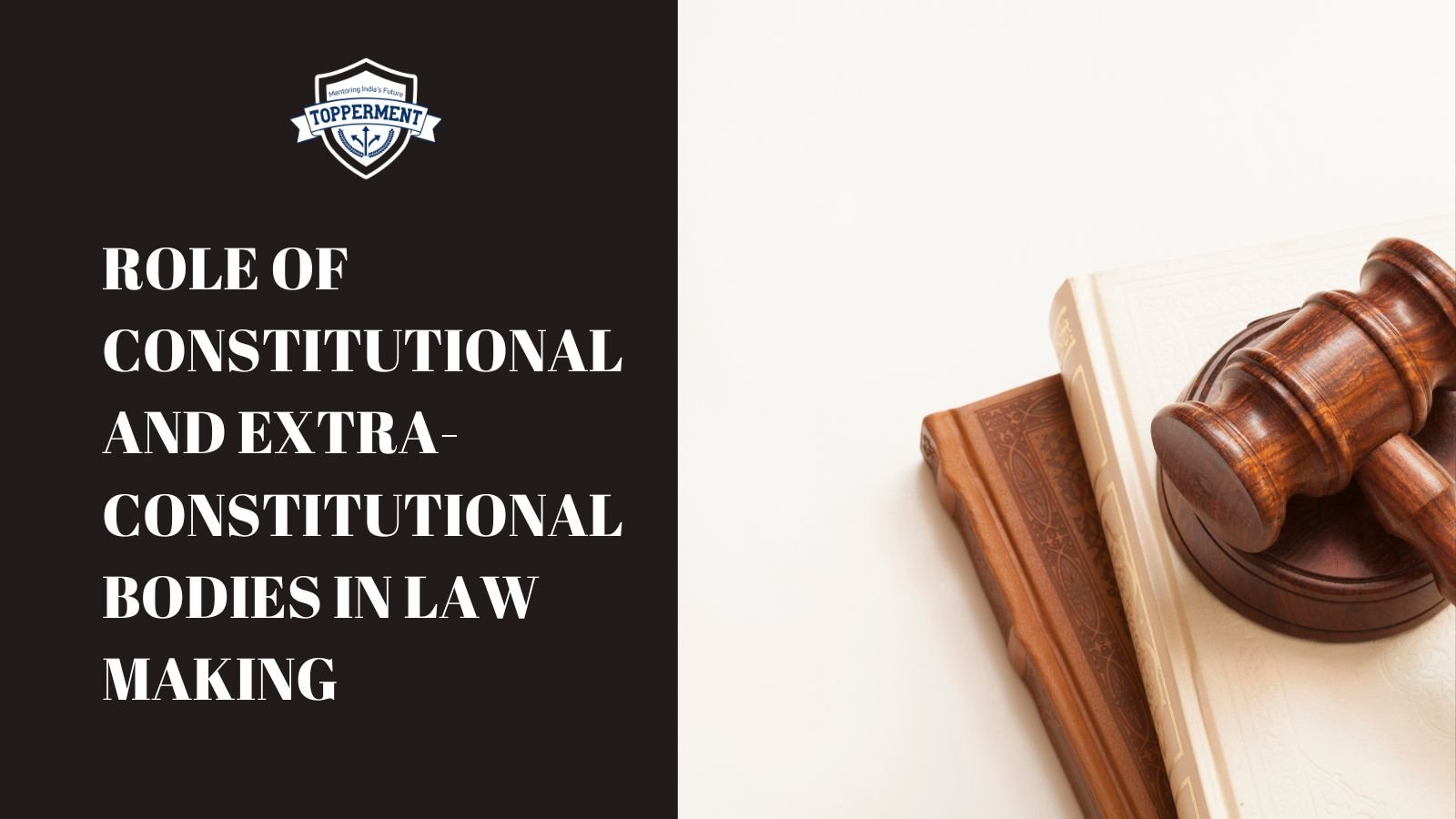Law making is a crucial process in any country’s governance system. It involves the creation, amendment, and implementation of laws that regulate various aspects of society. In many countries, the responsibility of law making is shared by both constitutional and extra-constitutional bodies
Constitutional Bodies:
Legislature:
The legislature is the primary constitutional body responsible for law making. It consists of elected representatives who create and pass laws. In a democratic setup, the legislature represents the will of the people and ensures that laws reflect the needs and aspirations of society.
Executive:
The executive branch, headed by the government, plays a significant role in law making. It proposes new laws, drafts bills, and presents them to the legislature for approval. Once a law is passed, the executive branch enforces and implements it.
Judiciary:
While the judiciary’s primary function is to interpret and apply laws, it indirectly influences law making. Through the process of judicial review, the judiciary ensures that laws passed by the legislature are in line with the constitution. If a law is found unconstitutional, it can be struck down or amended.
Extra-Constitutional Bodies:
Independent Regulatory Agencies:
These bodies are created by the government but operate outside the traditional framework of the legislature and executive. They are entrusted with specific areas of regulation, such as telecommunications, securities, or environmental protection. These agencies have the power to create regulations that have the force of law within their respective domains.
Civil Society Organizations (CSOs):
CSOs are non-governmental entities that represent the interests of various groups in society. They play a vital role in law making by advocating for legislative changes, raising public awareness, and influencing public opinion. CSOs can engage in lobbying, organizing protests, or using media platforms to push for reforms and amendments.
Professional Bodies:
Professional bodies are associations formed by individuals working in a specific field or profession. They contribute to law making by providing expert opinions, suggestions, and recommendations related to their respective industries. These inputs help lawmakers create laws that address the practical and technical aspects of various professions.
Constitutional and extra-constitutional bodies play integral roles in the law-making process. While constitutional bodies like the legislature, executive, and judiciary form the core of law making, extra-constitutional bodies such as independent regulatory agencies, civil society organizations, and professional bodies contribute by providing diverse perspectives and expertise
Also Read
Follow Us For More Content On:
https://www.instagram.com/topperment/
Tag:Constitutional Bodies, Executive, IAS, IFS, India, IPS, IRS, Judiciary, Law, Law Making, Legislature, Politics, Polity, UPSC


